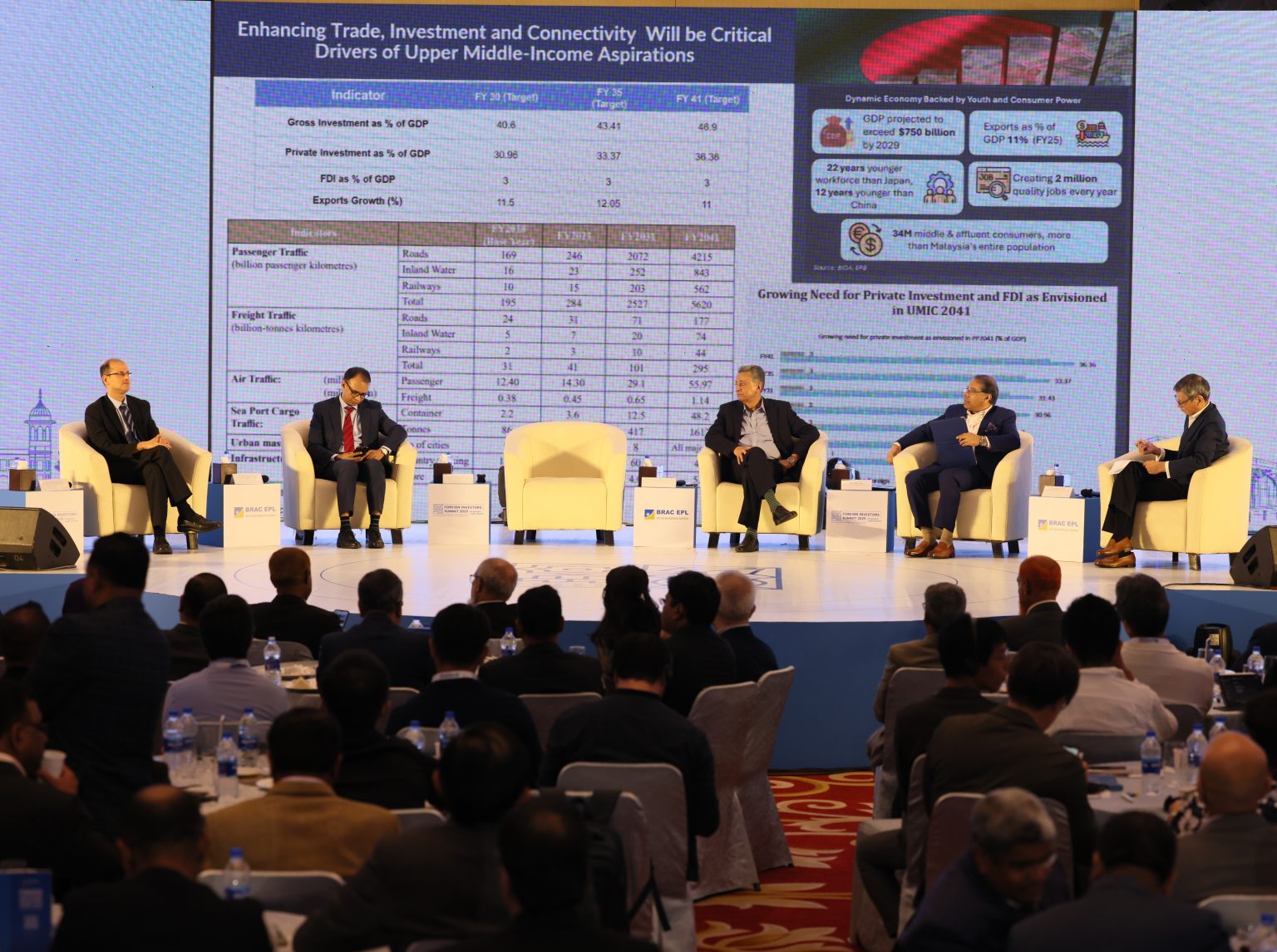Foreign investors have expressed serious concerns over the ongoing violence in Bangladesh, despite their optimism about the country’s economic recovery.
“We will support Bangladesh’s need for long-term equity capital, but we will not tolerate violence,” said Takao Hirose, managing director of Florida-based Contextual Investment LLC, during a keynote speech at the Foreign Investor Summit 2025 in the capital on Wednesday.
“Foreign investors are ‘fast money’—greedy, aggressive, yet fickle. At the first sign of instability, they will leave,” he warned at the event, which was organised by BRAC EPL Stock Brokerage.
In August last year, Hirose travelled to Dhaka from Florida to learn more about the “Gen Z-led revolution” in the country. “I realised that it was the young generation driving this transformation in Bangladesh, demanding better governance, accountability, and transparency. For investors like us, this is extremely important,” he said.
“Differences of opinion will exist, but they must be resolved peacefully because the world’s investors are watching Bangladesh closely,” Hirose added.
Another key speaker, Ruchir Desai, a Hong Kong-based Fund Manager at Asia Frontier Investments Limited, shared his insights on the challenges and opportunities in Bangladesh based on his decade-long experience of investing in the country.
He attributed the weakening of foreign investor confidence in Bangladesh to several controversial moves by previous governments, such as arbitrary rate fixing, shutting down the stock market during the pandemic, and setting floor prices for stocks.
Desai emphasised the need for serious reforms.
“I started investing in Bangladesh a decade ago, betting on GDP growth. 10–12 years ago, Bangladesh’s GDP growth was above 6%, and it had a large young population. However, since 2018–19, foreign investor confidence has been affected,” he explained.
Mohammad Mohsin Chowdhury and Saifuddin Ahmed, commissioners of the Bangladesh Securities and Exchange Commission, briefed the investors on regulatory reforms aimed at making the country more investor-friendly.
Desai also echoed Hirose’s concern regarding the underperformance of Bangladesh’s capital market, stating, “There is a huge gap between what the market could contribute and what it has delivered. We need to address this gap to provide long-term financing for the economy.”
Hirose stressed that while Bangladesh’s economy had shown resilience in short-term capital management, it now requires long-term equity capital.
He said this would only be possible if the country establishes a strong framework, accountability, and good governance to inspire confidence in foreign investors.
Former BRAC Bank managing director Selim R F Hussain stated that while the banking sector is stabilising, reforms must continue.
Economist Masrur Reaz, Chairman of Policy Exchange Bangladesh, highlighted the country’s consistent economic growth, driven by the private sector, particularly in textiles and garments.
“We need to strengthen the capital market to sustain this growth,” he said.
BNP Standing Committee Member Amir Khasru Mahmud Chowdhury, a former commerce minister, pointed out that printing money and financing development through such methods is not sustainable.
“Bangladesh should opt for investors’ capital that requires a strong market ecosystem,” he added.
“Bangladesh has shown resilience through many challenges. Now, we must focus on creating a stable, predictable environment for investors,” he concluded.
The summit attracted over 100 Japanese investors and professionals from the finance, healthcare, tech, and engineering sectors.


